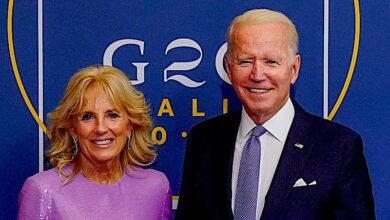Former Kansas Attorney General Phill Kline encourages return to paper ballots for elections
The United States needs to go back to paper ballots and processes to stamp out vulnerabilities that accompany the growing digital footprint in elections. That’s the assessment made by Phill Kline, former Kansas attorney general and now head of the Amistad Project.
“America was in the counting room in Bush v. Gore — we all got to look at the ballot and decide whether it was valid,” he said. “We can keep the paper and we can audit the paper, and we can do so with efficiency. But the primary aim should not be efficiency behind closed doors. It should be transparency and accuracy. Paper gives it to you.”
Kline’s comments came in his closing remarks at the launch of a report that claims Facebook Founder Mark Zuckerberg donated hundreds of millions of dollars that were used to fund voter organizations in violation of election laws. That report says that the organizations funded by the Facebook founder created a two-tiered system that treated voters differently depending on whether they lived in Democratic or Republican strongholds.
“Executive officials in swing states facilitated, through unique and novel contracts, the sharing of private and sensitive information about citizens within those states with private interests, some whom actively promote leftist candidates and agendas,” Kline wrote in the executive summary of the report. “This datasharing allowed direct access to data of unique political value to leftist cause, and created new vulnerabilities for digital manipulation of state electronic poll books and counting systems and machines.”
This public-private partnership in these swing states “placed government’s thumb on the scale,” he said.
The bulk of Zuckerberg’s funds went to the Center for Tech and Civic Life, a nonprofit started by former managers and staff at the New Organizing Institute, a progressive nonprofit. In addition to explaining the influence of Zuckerberg’s donations, Kline also outlined broader concerns with the increasing reliance on digital technology in elections.
“The vulnerability of our digital footprint in elections has been known for several years,” he told the audience. “In fact, in 2016, the FBI estimated that over half of our poll books were penetrated by foreign interests. So this digital concern is real. There is plenty of evidence that foreign interests are tied into our digital footprint and how we manage elections. And that needs to be discussed, and openly discussed, in this nation… whether we want to continue in that fashion.
“I believe that there are significant vulnerabilities, so we should go back, quite honestly, to paper.”
–Dwight Widaman | Metro Voice








